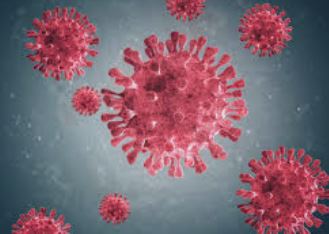


To Rebuild Trust, CDC Should Consider Going Back to What Used to Work Well: Subject Matter Experts Explaining Complexities Candidly for As Long As It Takes
Do you remember the 2009 swine flu pandemic, also referred to by the media as the H1N1 flu? I remember two things quite distinctly:
- As this flu crossed borders, infecting 700 million to 1.4 billion people — or 11 to 21 percent of the global population of 6.8 billion at the time — thankfully, the number of actual deaths caused by H1N1 were fewer than the typical seasonal flu.
- Between H1N1’s early appearance in late spring of 2009 and its eventual burnout around August of 2010, there was certainly serious analysis and reporting done by many reporters attempting to understand and interpret the situation. Unfortunately, equally influential news outlets and pundits fanned controversy over every slight change in H1N1 protocols and policies, completely ignoring this fact: as new information is discovered, science can and does often change.
I also remember in the years that followed while speaking across the country on the subject of crisis communications, when the subject of H1N1 came up I offered scathing criticism of the pundits and media outlets that ignored science – and especially scientific nuance – warning that the public would pay the price the next time this happened. And sure enough, we have.
Fast-forward to March of 2020 and the first reports of COVID-19. Today, every news media outlet has a metric-driven grasp of the fact that controversy drives eyeballs, eyeballs drive revenue and social media, where anyone can write or say anything and amass millions of friends and followers with a total disregard of the truth (or the shame that used to accompany lies) provides an exponential multiplier. Add to that the political weaponization of this disease and we have before us a situation tearing the country apart by its seams.
The scientists, too, bear responsibility. Recently, Dr. Peter Sandman, one of the country’s top experts in the field of risk communications, wrote to Nathaniel Weixel, healthcare reporter for The Hill, about the manner in which scientists talk to each other, to policymakers and to the public. Below, a copy of that letter. Although pointedly about COVID, there are lessons here for any organization involved in a controversial issue.
– Bruce Hennes, Hennes Communications
————————————————
To Rebuild Trust, CDC Should Consider Going Back to What Used to Work Well: Subject Matter Experts Explaining Complexities Candidly for As Long As It Takes
– By Dr. Peter Sandman
CDC’s loss of trust is real. It’s no longer just anti-vaxxers and Trump supporters who mistrust the agency. People who are worried about Omicron and determined to do the right thing are public health’s “home team” – and they too are losing trust in the agency.
CDC’s single biggest communication failing among many: the failure to provide a steady stream of expert explanation to journalists – to all journalists, from experienced public health reporters who ask about the implications of the latest research to novice general assignment reporters who need help getting the basics right.
In every previous public health crisis (even little ones), CDC has done presser after presser – not at the White House but at CDC headquarters in Atlanta; not just with the director but with real subject matter experts on hand. President Trump shut down CDC pressers after he got angry at CDC’s Nancy Messonnier for sounding the alarm in February 2020. Everyone thought President Biden would reinstate them. He didn’t.
For the rest, click here.